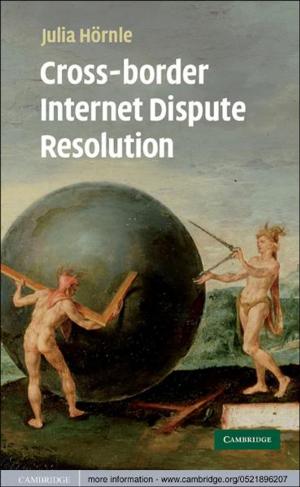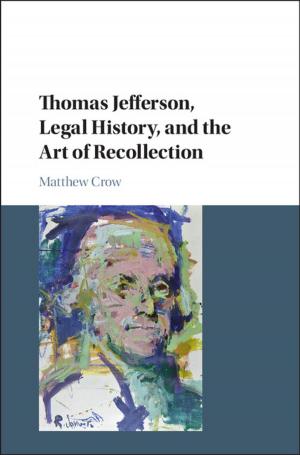| Author: | Karrin Hanshew | ISBN: | 9781139564427 |
| Publisher: | Cambridge University Press | Publication: | August 20, 2012 |
| Imprint: | Cambridge University Press | Language: | English |
| Author: | Karrin Hanshew |
| ISBN: | 9781139564427 |
| Publisher: | Cambridge University Press |
| Publication: | August 20, 2012 |
| Imprint: | Cambridge University Press |
| Language: | English |
In 1970, the Red Army Faction declared war on West Germany. The militants failed to bring down the state, but this book argues that the decade-long debate they inspired helped shape a new era. After 1945, West Germans answered long-standing doubts about democracy's viability and fears of authoritarian state power with a 'militant democracy' empowered against its enemies and a popular commitment to anti-fascist resistance. In the 1970s, these postwar solutions brought Germans into open conflict, fighting to protect democracy from both terrorism and state overreaction. Drawing on diverse sources, Karrin Hanshew shows how Germans, faced with a state of emergency and haunted by their own history, managed to learn from the past and defuse this adversarial dynamic. This negotiation of terror helped them to accept the Federal Republic of Germany as a stable, reformable polity and to reconceive of democracy's defence as part of everyday politics.
In 1970, the Red Army Faction declared war on West Germany. The militants failed to bring down the state, but this book argues that the decade-long debate they inspired helped shape a new era. After 1945, West Germans answered long-standing doubts about democracy's viability and fears of authoritarian state power with a 'militant democracy' empowered against its enemies and a popular commitment to anti-fascist resistance. In the 1970s, these postwar solutions brought Germans into open conflict, fighting to protect democracy from both terrorism and state overreaction. Drawing on diverse sources, Karrin Hanshew shows how Germans, faced with a state of emergency and haunted by their own history, managed to learn from the past and defuse this adversarial dynamic. This negotiation of terror helped them to accept the Federal Republic of Germany as a stable, reformable polity and to reconceive of democracy's defence as part of everyday politics.















